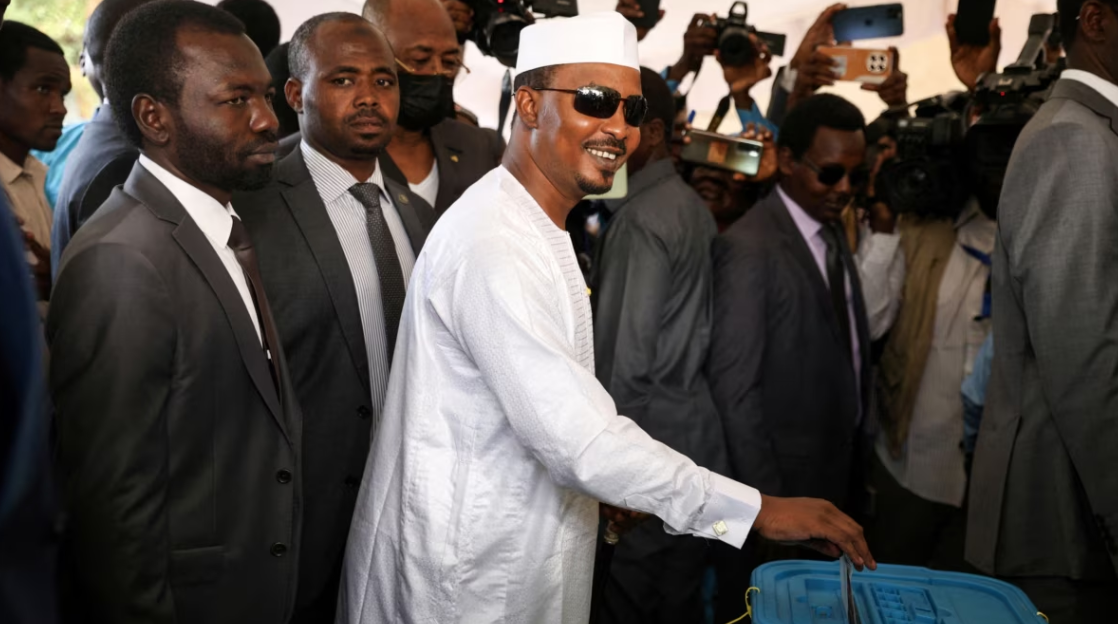Chad’s Constitutional Council Officially: With a remarkable 61% of the vote, Mahamat Idriss Déby, a seasoned politician and son of the late President Idriss Déby, was confirmed as the president of Chad by the Constitutional Council on Thursday, May 16th. This monumental triumph in Chad’s political scene put Déby, who has a strong military background, in a far stronger position than his opponents, Succès Masra, a prominent human rights lawyer, and Albert Pahimi Padacké, a former prime minister.
Even with minor revisions, the Council’s meticulous scrutiny and reaffirmation of vote tallies, a crucial step in ensuring the accuracy and fairness of the election, sealed Déby’s victory. Déby effortlessly won with 61.03% of the vote, leaving his prime minister in second place with 18.54% and Padacké in third place with 16.93%. The importance of this election was shown by the remarkable participation rate of 75.78 percent of eligible voters.
Following the Council’s announcement, Succès Masra’s supporters, while disappointed, showed great statesmanship by refraining from any violent protests. His call for calm and patience among his followers, many of whom are young and politically active, echoed his preference for political solutions over further legal routes.
Similarly, Padacké’s director and the campaign he was leading gracefully acknowledged the decision of the Council. Their appeal for unity and support for the incoming president to tackle the country’s challenges resonated a spirit of national solidarity, fostering a sense of stability and harmony.
Seeing the election result as fulfilling a pledge made during the transitional phase, Déby’s camp, boosted by the affirmation of his leadership, expressed tremendous joy. This feeling indicated the widespread confidence in Déby’s ability to bring about constructive change.
The mood in Ndjamena was noticeably serene following the revelation of the final results, in stark contrast to the chaos that accompanied the announcement of the provisional results, which tragically led to the deaths of at least ten people. The capital’s muted yet serene atmosphere is mainly due to the authorities’ proactive prohibition of celebratory gunfire, which significantly contributed to this calm.
With his crushing triumph, Mahamat Idriss Déby has opened a new chapter in Chad’s political history and demonstrated the strength and development of the country’s democratic institutions. As the country moves forward under his leadership, there is tangible hope for a better future characterized by harmony, stability, and advancement. However, Déby’s administration is likely to face significant challenges, including economic instability and security threats from rebel groups, which could potentially hinder the realization of these aspirations.



















